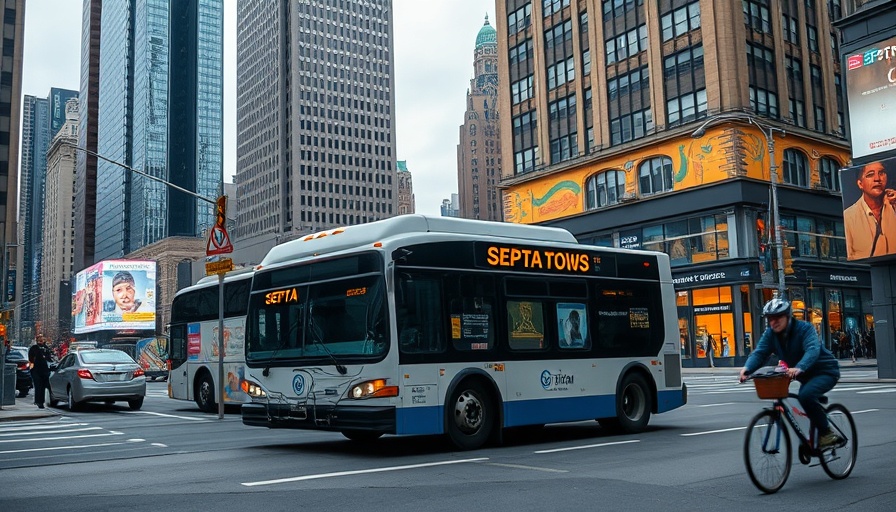
Philadelphia's New Speed Cameras: Safety First!
In an effort to enhance safety on Broad Street, Philadelphia has embraced the implementation of speed cameras as part of its broader Vision Zero initiative, aiming to eliminate all traffic fatalities. With the recent launch of these cameras, drivers are being reminded: Smile! You're on camera, a statement that carries both a cheeky tone and a serious call to action for safer road practices.
Why Speed Cameras Matter
Traffic safety has become a pressing concern in urban areas, and Broad Street, one of the busiest thoroughfares in Philadelphia, is no exception. By deploying speed cameras, the city hopes to deter reckless driving behaviors that can lead to accidents, injuries, and fatalities. These cameras work on the principle of enhancing compliance with speed limits, urging drivers to adjust their habits. As Philadelphia sees continued growth in both population and traffic, this proactive measure is crucial.
Community Reactions: Mixed Feelings
The announcement of speed cameras has led to a mix of reactions from the community. Many residents support the initiative, believing it will save lives and promote pedestrian safety in their neighborhoods. However, some express skepticism, viewing it as a potential revenue generator for the city rather than a genuine public safety measure. Engaging the community in discussions centered around road safety and driving behaviors can bridge this divide, fostering collaboration between city officials and residents.
Broader Trends in Traffic Enforcement
Across the United States, cities are increasingly resorting to automated traffic enforcement to combat reckless driving. According to recent studies, jurisdictions that have implemented speed cameras saw a notable decrease in speed-related incidents. Philadelphia's adaptation to this method aligns it with national trends that prioritize safety on the roads. The challenge remains: how effectively can technology change behavior?
Making the Case for Safer Roads
For many top wage earners in Philadelphia who commute daily, understanding how speed cameras benefit their community is paramount. By lowering the risk of accidents, these measures will not only save lives but can also help reduce insurance premiums over time. Taking part in discussions about traffic safety, whether through formal city meetings or community forums, allows residents to voice their opinions and influence policies that affect their daily lives.
Join the Dialogue on Traffic Safety!
As Philadelphia continues to implement measures to ensure safer streets, it’s essential for the community to engage. Share your thoughts, attend local meetings, and be a voice for safety. Collaboration leads to better outcomes for everyone.
 Add Row
Add Row  Add
Add 




Write A Comment